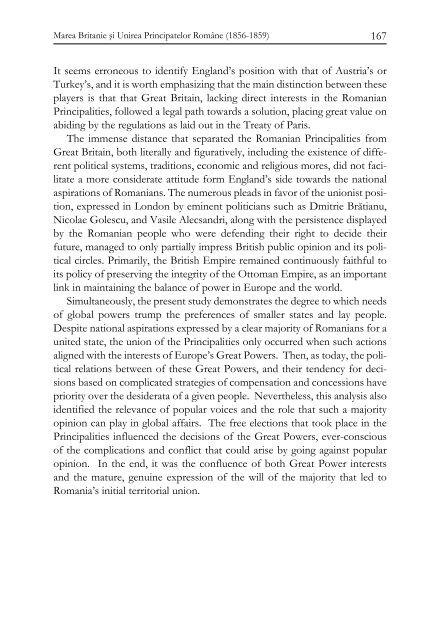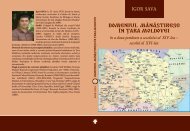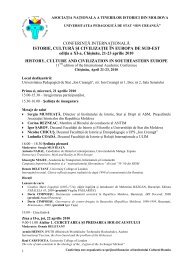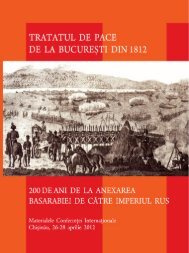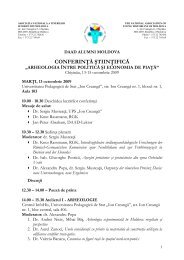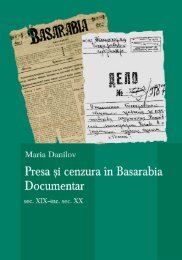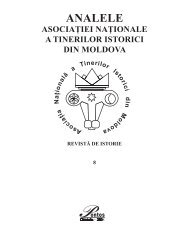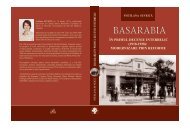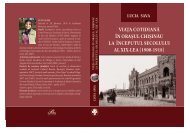DIANA DUMITRU, Marea Britanie Åi Unirea Principatelor Române
DIANA DUMITRU, Marea Britanie Åi Unirea Principatelor Române
DIANA DUMITRU, Marea Britanie Åi Unirea Principatelor Române
- No tags were found...
You also want an ePaper? Increase the reach of your titles
YUMPU automatically turns print PDFs into web optimized ePapers that Google loves.
<strong>Marea</strong> <strong>Britanie</strong> şi <strong>Unirea</strong> <strong>Principatelor</strong> Române (1856-1859)167It seems erroneous to identify England’s position with that of Austria’s orTurkey’s, and it is worth emphasizing that the main distinction between theseplayers is that that Great Britain, lacking direct interests in the RomanianPrincipalities, followed a legal path towards a solution, placing great value onabiding by the regulations as laid out in the Treaty of Paris.The immense distance that separated the Romanian Principalities fromGreat Britain, both literally and figuratively, including the existence of differentpolitical systems, traditions, economic and religious mores, did not facilitatea more considerate attitude form England’s side towards the nationalaspirations of Romanians. The numerous pleads in favor of the unionist position,expressed in London by eminent politicians such as Dmitrie Brătianu,Nicolae Golescu, and Vasile Alecsandri, along with the persistence displayedby the Romanian people who were defending their right to decide theirfuture, managed to only partially impress British public opinion and its politicalcircles. Primarily, the British Empire remained continuously faithful toits policy of preserving the integrity of the Ottoman Empire, as an importantlink in maintaining the balance of power in Europe and the world.Simultaneously, the present study demonstrates the degree to which needsof global powers trump the preferences of smaller states and lay people.Despite national aspirations expressed by a clear majority of Romanians for aunited state, the union of the Principalities only occurred when such actionsaligned with the interests of Europe’s Great Powers. Then, as today, the politicalrelations between of these Great Powers, and their tendency for decisionsbased on complicated strategies of compensation and concessions havepriority over the desiderata of a given people. Nevertheless, this analysis alsoidentified the relevance of popular voices and the role that such a majorityopinion can play in global affairs. The free elections that took place in thePrincipalities influenced the decisions of the Great Powers, ever-consciousof the complications and conflict that could arise by going against popularopinion. In the end, it was the confluence of both Great Power interestsand the mature, genuine expression of the will of the majority that led toRomania’s initial territorial union.


